
 Flash News
Flash News
Lavrov: NATO is risking self-destruction with new military budget
Kurti and Vučić "face off" tomorrow in Skopje
Construction worker dies after falling from scaffolding in Berat
The prosecution sends two Korça Municipality officials to trial
Violation with the €2.3 million tender, GJKKO imposes security measures on the head of the Public Procurement Commission, he is suspended from duty
Record-breaking summer, health threats and preventive measures

Increasing extreme temperatures, a threat to public health during the summer
As temperatures rise during the summer months, experts warn of serious public health risks associated with exposure to extreme heat and the illnesses that can occur during this period. In the US and Europe, where temperatures are reaching over 35 degrees Celsius, health authorities have issued warnings to citizens, while the situation is expected to be challenging for our country as well.
High heat can cause severe heat exhaustion and heatstroke, which is a medical emergency. Symptoms of heatstroke include rapid breathing, confusion, seizures, and nausea. Without immediate treatment, it can lead to permanent organ damage and even death.
High temperatures are often combined with high humidity, making it more difficult for the body to naturally cool itself through sweating, a phenomenon that is worsening with climate change.
Most at-risk groups
Health experts warn that those particularly at risk are:
The elderly
Babies and young children
People with chronic diseases such as diabetes, heart and lung diseases
Workers in open environments
Socially isolated people and those in difficult economic circumstances
Furthermore, most heat-related deaths occur in early summer, due to the body's lack of acclimatization.
Other health and environmental hazards
Extreme heat is not limited to its direct effects on the body. It affects the spread of infectious diseases, as it encourages the growth of bacteria and toxic algae in water sources, increasing the risk of diseases such as cholera. In addition, mosquitoes that carry tropical diseases such as dengue, Zika and West Nile fever are expanding their habitat in areas of the Balkans.
In Albania, cases of West Nile fever were recorded in August 2024, raising concerns about the further spread of this disease during heat waves. Other insect-borne diseases, which are spreading due to climate change, are also of concern in the region.
The effects of heat also include damage to agricultural crops, damage to road infrastructure, worsening air pollution due to forest fires, and negative impacts on mental health.
How to protect ourselves?
Health authorities recommend:
Stay in cool environments and stay hydrated constantly
Avoid excessive physical activity during the hottest hours of the day
Provide protection against mosquitoes and insects, using repellents and window protection
Be careful with water and food hygiene to avoid infections
Employers must provide sufficient breaks and water for their workers, especially those working outdoors.
Staying informed and following official warnings is vital.
Several cities in the US and Europe have opened public cooling centers and provided free air-conditioned transportation to help residents during heat waves.
Conclusion: As summers become hotter and climate change increases the frequency of heat waves, preparation and prevention are more important than ever. Attention to the most vulnerable groups and public awareness are key to avoiding tragic consequences during the summer months.
Latest news


Temperatures above 40 degrees, France closes nuclear plants and schools
2025-06-30 20:28:42
Lavrov: NATO is risking self-destruction with new military budget
2025-06-30 20:13:54
Turkey against the "Bektashi state" in Albania: Give up this idea!
2025-06-30 20:03:24

Accused of sexual abuse, producer Diddy awaits court decision
2025-06-30 19:40:44



Kurti and Vučić "face off" tomorrow in Skopje
2025-06-30 18:44:12
Tourism: new season, old problems
2025-06-30 18:27:23


Construction worker dies after falling from scaffolding in Berat
2025-06-30 17:51:44




Almost free housing: East Germany against depopulation
2025-06-30 16:43:06

Hamas says nearly 60 people killed in Gaza as Trump calls for ceasefire
2025-06-30 16:14:15
Drownings on beaches/ Expert Softa: Negligence and incompetence by institutions!
2025-06-30 16:00:03


European ports are overloaded due to Trump tariffs
2025-06-30 15:30:44
The prosecution sends two Korça Municipality officials to trial
2025-06-30 15:19:54

Lezha/ Police impose 3165 administrative measures, handcuff 19 drivers
2025-06-30 14:55:04
Young people leave Albania in search of a more sustainable future
2025-06-30 14:47:52
Record-breaking summer, health threats and preventive measures
2025-06-30 14:36:19


Constitution of the Parliament, Osmani invites political leaders to a meeting
2025-06-30 14:07:54

Heat wave 'invades' Europe, Spain records temperatures up to 46 degrees Celsius
2025-06-30 13:42:02
Accident in Vlora, car hits 2 tourists
2025-06-30 13:32:16

Kurti confirms participation in today's official dinner in Skopje
2025-06-30 13:03:27

Fight between 4 minors in Kosovo, one of them injured with a knife
2025-06-30 12:38:45

Report: Teenage girls the loneliest in the world
2025-06-30 12:20:40
Commissioner Kos and Balkan leaders meet in Skopje on Growth Plan
2025-06-30 12:07:59
Wanted by Italy, member of a criminal organization captured in Fier
2025-06-30 11:55:53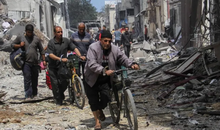
Hundreds of families displaced by wave of Israeli airstrikes in Gaza
2025-06-30 11:45:17
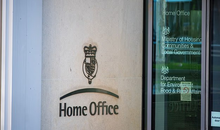
Zenel Beshi: The criminal who even 50 convictions won't move from Britain
2025-06-30 11:23:19
A new variant of Covid will circulate during the summer, here are the symptoms
2025-06-30 11:14:58


"Partizani" case, trial postponed to July 21 at the Special Court
2025-06-30 10:41:05
Uncontrolled desire to steal, what is kleptomania, why is it caused
2025-06-30 10:30:08
Requested change of security measure, hearing for Malltez postponed to July 7
2025-06-30 10:24:32


Output per working hour in Albania 35% lower than the regional average
2025-06-30 09:54:35


The trial for the "Partizani" file begins today
2025-06-30 09:27:57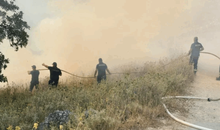
22 fires in the last 24 hours in the country, 2 still active
2025-06-30 09:21:28
How is the media controlled? The 'Rama' case and government propaganda
2025-06-30 09:13:36
German top diplomat: Putin wants Ukraine to capitulate
2025-06-30 09:00:07
Foreign exchange, how much foreign currencies are sold and bought today
2025-06-30 08:44:38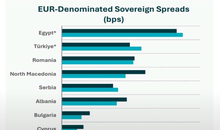
Chart/ Sovereign risk for Albania from international markets drops significantly
2025-06-30 08:26:38
Horoscope, what do the stars have in store for you?
2025-06-30 08:11:44
Clear weather and passing clouds, here is the forecast for this Monday
2025-06-30 07:59:32
Morning Post/ In 2 lines: What mattered yesterday in Albania
2025-06-30 07:47:37
Milan make official two departures in attack
2025-06-29 21:57:23
6 record tone
2025-06-29 21:30:46
4-year-old girl falls from balcony in Lezha, urgently taken to Trauma
2025-06-29 21:09:58


Assets worth 12 million euros seized from cocaine trafficking organization
2025-06-29 19:39:43
Fire in Durrës, Blushi: The state exists only on paper
2025-06-29 19:17:48

Fire endangers homes in Vlora, helicopter intervention begins
2025-06-29 18:27:51
France implements smoking ban on beaches and parks
2025-06-29 18:02:08
England U-21 beat Germany to become European champions
2025-06-29 17:42:49
Trump criticizes Israeli prosecutors over Netanyahu's corruption trial
2025-06-29 17:08:10
Street market in Durrës engulfed in flames
2025-06-29 16:52:57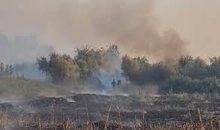

UN nuclear chief: Iran could resume uranium enrichment within months
2025-06-29 16:03:24
Albanian man dies after falling from cliff while climbing mountain in Italy
2025-06-29 15:52:01

Another accident with a single-track vehicle in Tirana, a car hits a 17-year-old
2025-06-29 15:07:15
While bathing in the sea, a vacationer in Durrës dies
2025-06-29 14:54:01
Sentenced to life imprisonment, cell phone found in Laert Haxhiu's cell
2025-06-29 14:26:40
77 people detained in protest, Vučić warns of new arrests
2025-06-29 14:07:46

From a hospital for children to a prison for politicians
2025-06-29 13:34:02
77-year-old man found dead in Pogradec
2025-06-29 13:13:10
The Metropolitan of Gjirokastra passes away
2025-06-29 12:52:27
The 39th session to elect the speaker of Kosovo's parliament also fails
2025-06-29 12:31:28
France bans smoking on beaches and parks
2025-06-29 12:16:23
Alarm from the Philippines: Albania, a growing destination for labor trafficking
2025-06-29 11:50:34

After 2-year ban, Paul Pogba signs with Monaco
2025-06-29 11:15:15
Can Albania produce all the food it needs?
2025-06-29 11:02:12

